
CALL FOR APPLICATIONS- internships at Prague European Summit 2024
More info 23. 4. 2024
23. 4. 2024
Are you interested in the European Union and the future of the European continent? Do you want to work in an international team and gain experience in organising events at the highest political level? Apply by 10 May and get a unique experience organising the Prague European Summit conference.
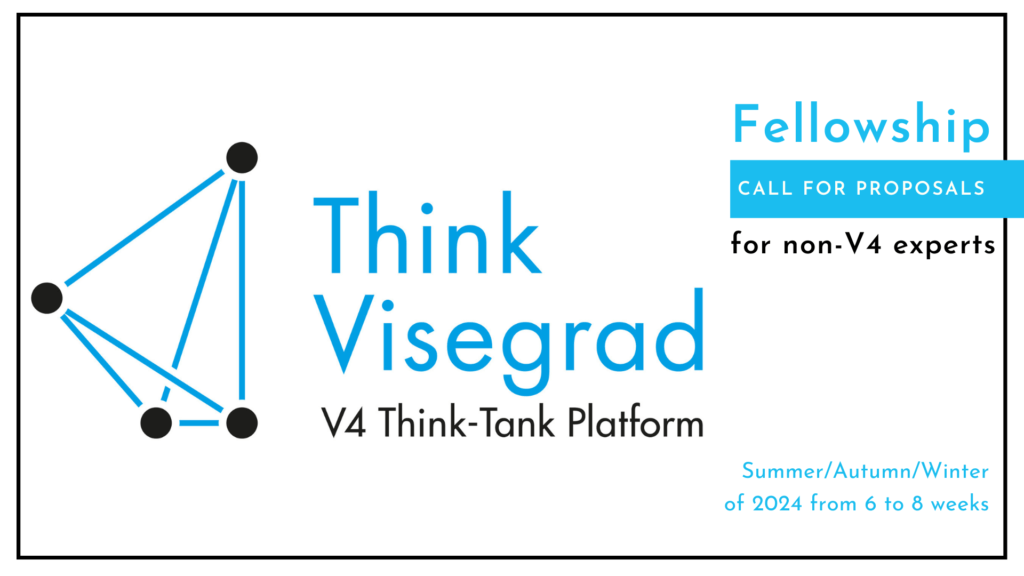
Think Visegrad Fellowship offer: Call for proposals 2024
More info 19. 4. 2024
19. 4. 2024
The Think Visegrad platform, which brings together think tanks from the Visegrad countries, including the EUROPEUM Institute for European Policy, is offering eight visiting fellowships to non-Visegrad expert fellows for the period Summer/Autumn/Winter of 2024. The duration of fellowships varies from 6 to 8 weeks (based on agreement with the hosting institute).
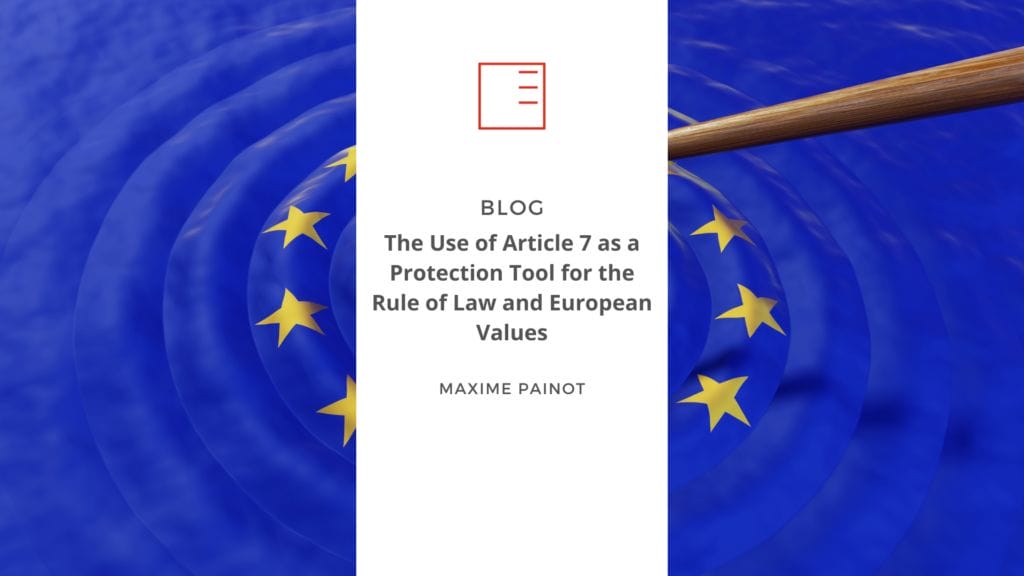
BLOG | The Use of Article 7 as a Protection Tool for the Rule of Law and European Values
More info 19. 4. 2024
19. 4. 2024
With Hungary taking over the EU presidency in July 2024, many are questioning the EU's ability to promote its values in its member states. Indeed, the EU is about to hand over its presidency to a state that has been criticised for its actions that threaten the rule of law and is subject to the procedure set out in Article 7 of the Treaty on European Union (TEU), writes Maxime Painot in his blog.
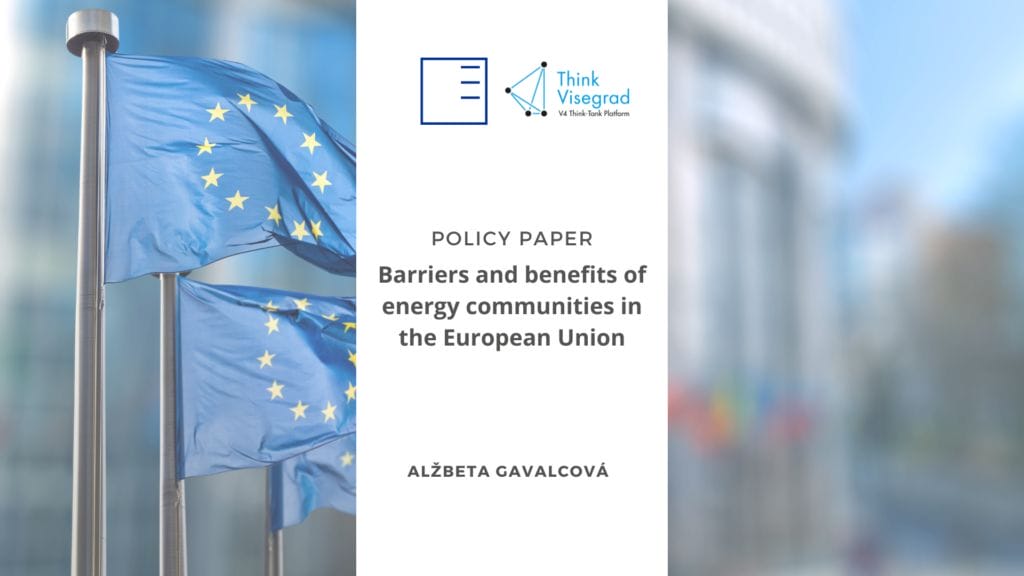
Policy Paper | Barriers and benefits of energy communities in the European Union
More info 21. 3. 2024
21. 3. 2024
Energy communities are an effective means to decentralize and renew our energy systems with sustainable solutions as they are usually based on renewable energy. They have already started emerging in 1970´s, yet there has been a significant increase in their development only in recent years, also in terms of their introduction into the EU legislation. Especially in Western and Northern European countries the concept already enjoys vast popularity. On the other hand, in Central and Eastern European countries (further referred to as CEE) energy communities are only beginning to emerge. The policy brief (based on literature and interviews with various stakeholders ) examines the benefits energy communities may bring, and more importantly, the main obstacles remaining in their way for greater evolution in the CEE region – and especially Visegrad countries (V4). As these initiatives progress, sharing the best practices will ensure the success of the community energy in the energy transition. Writes Alžbeta Gavalcová.
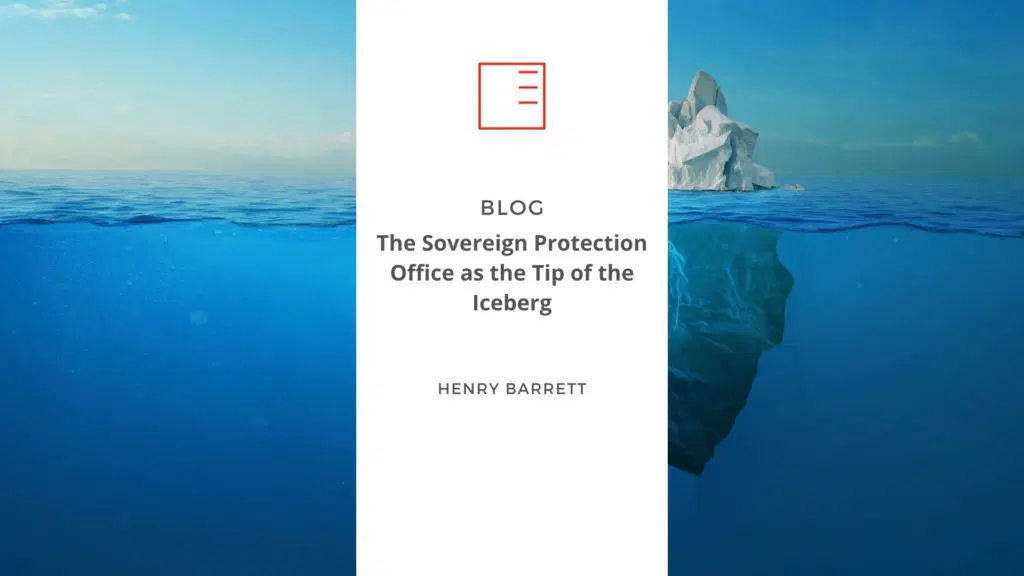
BLOG | The Sovereign Protection Office as the Tip of the Iceberg
More info 20. 3. 2024
20. 3. 2024
In December 2023, the Hungarian Parliament passed a law establishing the Office for the Protection of the Sovereign, a state agency that now has unlimited access to personal data to search for and prosecute alleged foreign agents among the Hungarian population. Our researcher Henry Barrett, a Fulbright-Schuman Grantee, writes about this topic in his blog.
More info 8. 3. 2024
8. 3. 2024
The selection of candidates to fill the highest positions in the EU institutions is always a complex alchemy, where the results of the European elections must intersect with political, geographical and, in recent years, gender balances. Read the full article here.

Project for journalists from Serbia and Bosnia & Herzegovina
More info 1. 3. 2024
1. 3. 2024
EUROPEUM Institute for European Policy invites journalists, editors and media experts to participate in a project “Preparing news media in Bosnia and Herzegovina and Serbia for the digital age” supported by the Transition Promotion Programme of the Ministry of Foreign Affairs of the Czech Republic.
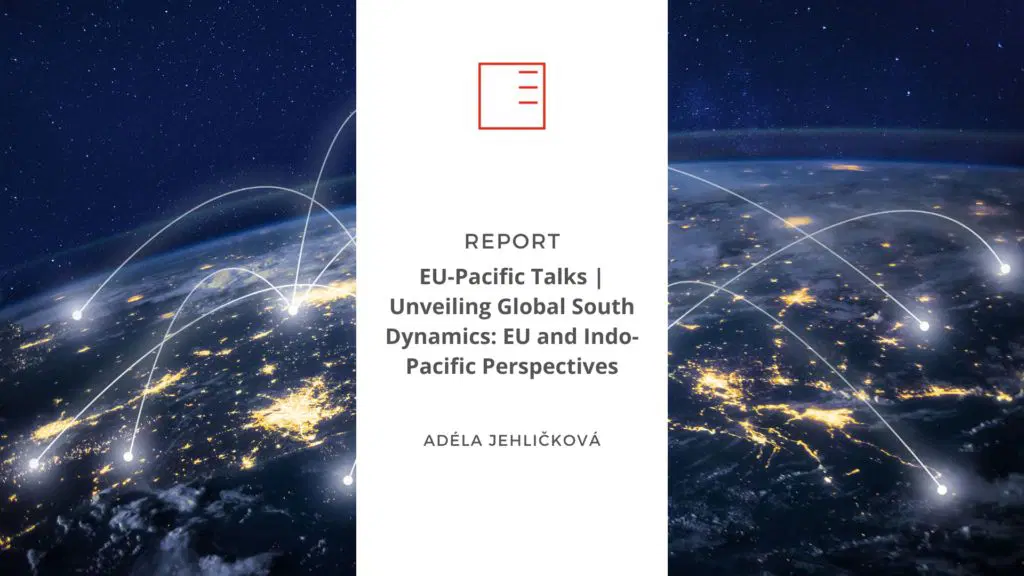
Report | EU-Pacific Talks | Unveiling Global South Dynamics: EU and Indo-Pacific Perspectives
More info 26. 2. 2024
26. 2. 2024
During the fifth debate of the third edition of the EU-Pacific Talks, organised by EUROPEUM Institute for European Policy, participants focused on the importance of the Global South and the events taking place there that require attention. In the debate, participants stressed the importance of recognising regional differences, showing respect for the countries in the region and actively engaging in listening to their views. Read what our guests discussed in the report written by Adéla Jehličková.
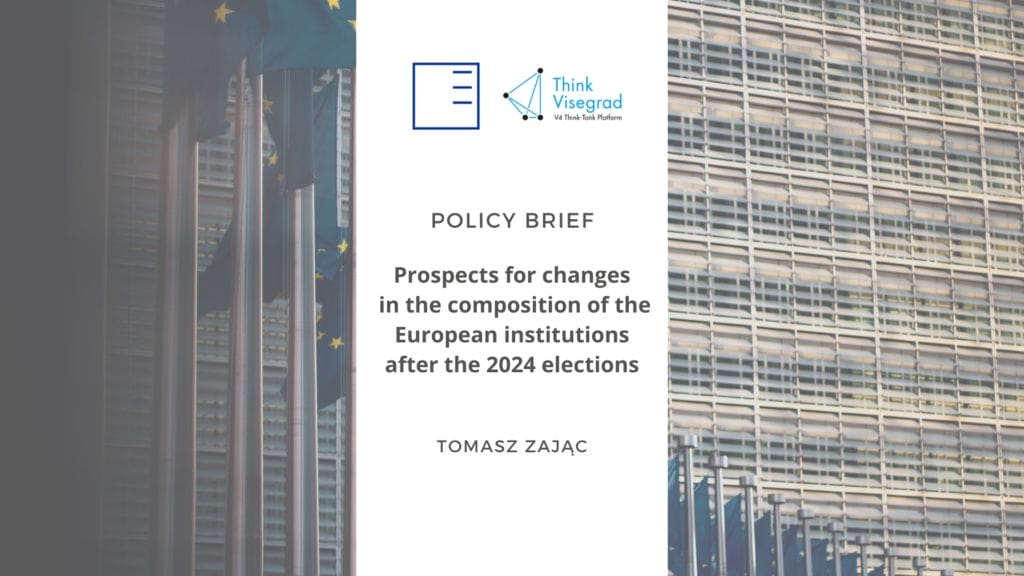
Policy Brief | Prospects for changes in the composition of the European institutions after the 2024 elections
More info 22. 2. 2024
22. 2. 2024
This policy brief analyses the prospective changes in the European Parliament (EP) composition following the 2024 elections. It reflects on the evolving political environment since 2019, highlighting shifts in party dynamics within the EP, such as the fragmentation of traditional party dominance and the emergence of new political alignments. Additionally, it explores potential reconfigurations in top EU positions post-elections and examines ongoing concerns regarding geographical representation within EU institutions, particularly the European Commission. Writes Tomasz Zając from the Polish Institute of International Affairs (PISM).
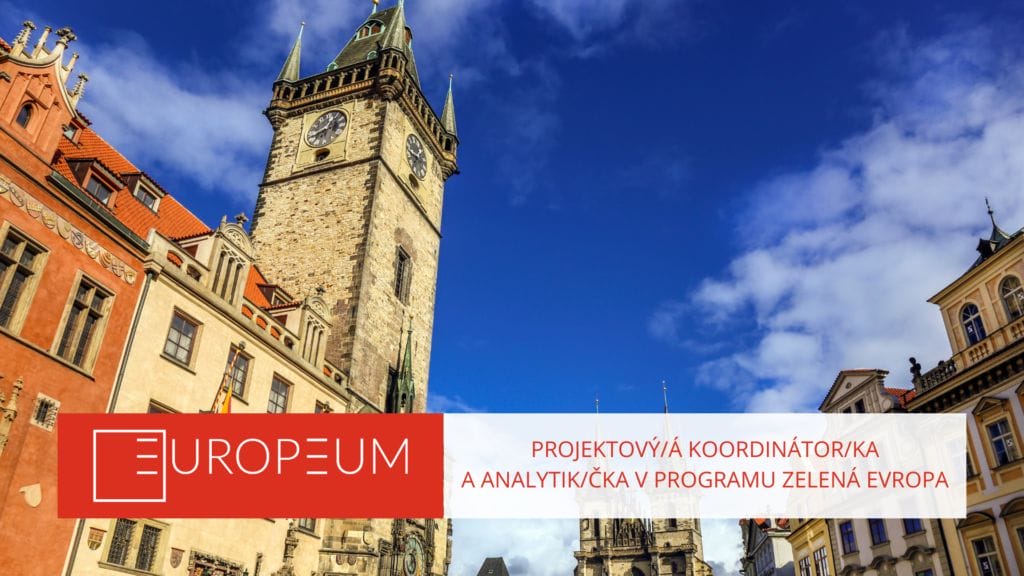
Project Coordinator and Analyst in Green Europe Programme
More info 12. 2. 2024
12. 2. 2024
EUROPEUM Institute for European Policy invites applications for the position of Project Coordinator and Analyst in the Green Europe Programme.
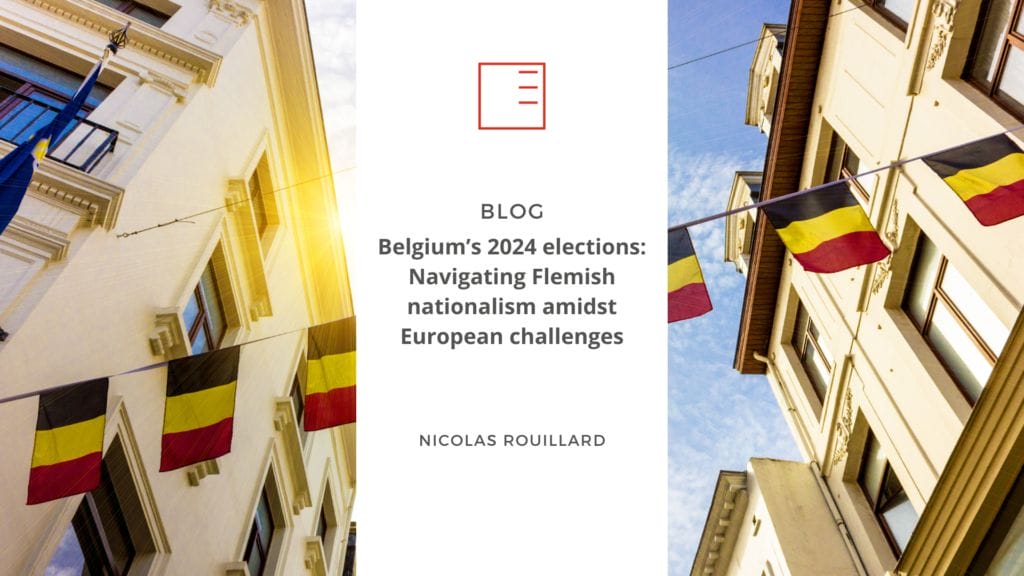
BLOG | Belgium’s 2024 elections: Navigating Flemish nationalism amidst European challenges
More info 7. 2. 2024
7. 2. 2024
Belgium is gearing up for several elections this year. In addition to the European elections, Belgian citizens will also vote for the federal and regional parliaments on the same day. Although this arrangement is nothing new in Belgium, it may make it more difficult for voters to distinguish between the different election campaigns. Growing Flemish nationalism may also bring complications. These topics are addressed by Nicolas Rouillard in his new blog.
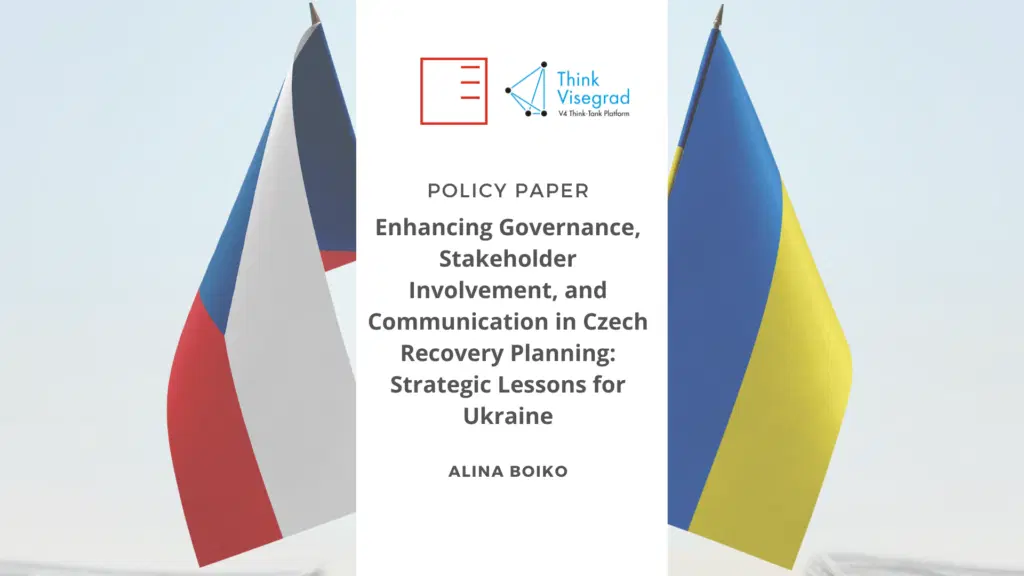
Policy Paper | Enhancing Governance, Stakeholder Involvement, and Communication in Czech Recovery Planning: Strategic Lessons for Ukraine
More info 7. 2. 2024
7. 2. 2024
Can Ukraine take lessons from the Czech approach to the recovery plan? Alina Boiko focuses on the Czech implementation of the Recovery and Resilience Plan, which could help the Ukrainian authorities improve their ability to implement new policies.